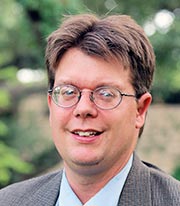During the first week of January, I participated in the annual Interfaith Seminary Retreat sponsored by the Multicultural Alliance of Texas. This event brings together students from Christian seminaries in Texas with Jewish and Muslim seminarians from Los Angeles and Baltimore for the purpose of deeper learning and awareness of one another’s traditions. The focus of this retreat was the role of story telling. Stories were used not just to explain the various traditions represented but as a way of engaging one another in small groups and individually. The act of telling stories is a powerful way of humanizing those who might seem different from us. It allows us both to see what is distinctive about each of our journeys but also what are the commonalities that bind us together.
Part of the genius of the Rev. Dr. Martin Luther King, Jr. was his ability to take different stories and deploy them for the sake of justice. In his essays, sermons, and speeches he presented to white Americans the story of African Americans and their pursuit of rights. He used the shared stories of the Scriptures and the narratives of American identity to appeal to the conscience of white Americans to stand together with African Americans for the pursuit of justice. And Martin Luther King’s story now has entered into the canon of stories Americans tell when they speak of justice, rights, and heroism.
Despite the positive value of stories to unite, our cultural moment is one of deep fragmentation. This truth has been especially vivid in the protests and counter-protests that have emerged in the wake of the decisions to not bring charges in the deaths of Michael Brown and Eric Garner. The tragic death of two New York City police officers and the divisions between that department and Mayor Bill de Blasio add to this tension. I write this reflection in the wake of the terrorist attacks in Paris against French cartoonists and satirists. Read one way, we live in times of deep divisions. And yet we feel the pains of these divisions because we are human beings and know that our intended state is to live in harmony with one another. And yet harmony does not mean erasing differences, but openly acknowledging them and then acting in love, truth, and justice to seek reconciliation.
There are many paths to harmony and reconciliation. But a powerful means of achieving it is to gather, share stories, and recognize our common humanity. It is what Jesus did in his parables. It is what King did in his work. And it is what we can do in our own communities. Tell a story. Ask for a story. Listen and respond as a first step towards reconciliation and justice.
 Dr. Joslyn-Siemiatkoski (@danjoslynsiem) joined the seminary faculty in Fall 2014 following his tenure since 2005 on the faculty at Church Divinity School of the Pacific in Berkeley, California. His areas of interest include Jewish-Christian history, the history of Anglican ecclesiology, and contemporary interfaith dialogue.
Dr. Joslyn-Siemiatkoski (@danjoslynsiem) joined the seminary faculty in Fall 2014 following his tenure since 2005 on the faculty at Church Divinity School of the Pacific in Berkeley, California. His areas of interest include Jewish-Christian history, the history of Anglican ecclesiology, and contemporary interfaith dialogue.

